Did VE Day parties cause a spike in Covid-19 cases?
- Published
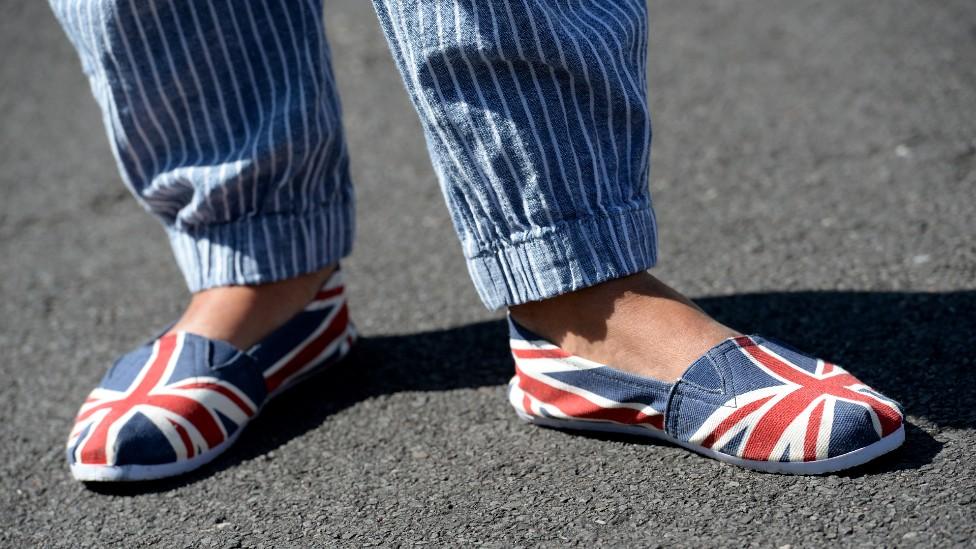
One day last week the number of new coronavirus cases registered at Bradford Royal Infirmary jumped to 30. Dr John Wright thinks there could be a link to VE Day parties that ended in fist fights, or in embraces.
The day after the Prime Minister announced an easing of the lockdown, the number of new Covid patients in the hospital fell to a reassuring three. And two of them were my medical colleagues.
The low figure partly resulted from delays in reporting, which happen every weekend, but there was still a collective sigh of relief. Maybe everything was going to be all right after all?
But three days later, on Thursday 14 May, the number of new Covid-positive patients had shot up to 30.
It's just one figure, and in normal times we might discount it as random variation. However these are times of alertness, and every flicker of the Covid dashboard needle triggers nervous anticipation of a possible spike.
There is a delay between infection and symptoms, usually about five-to-seven days. So these cases would have been incubating since the week before - and possibly since the communal gatherings on VE Day, six days earlier.
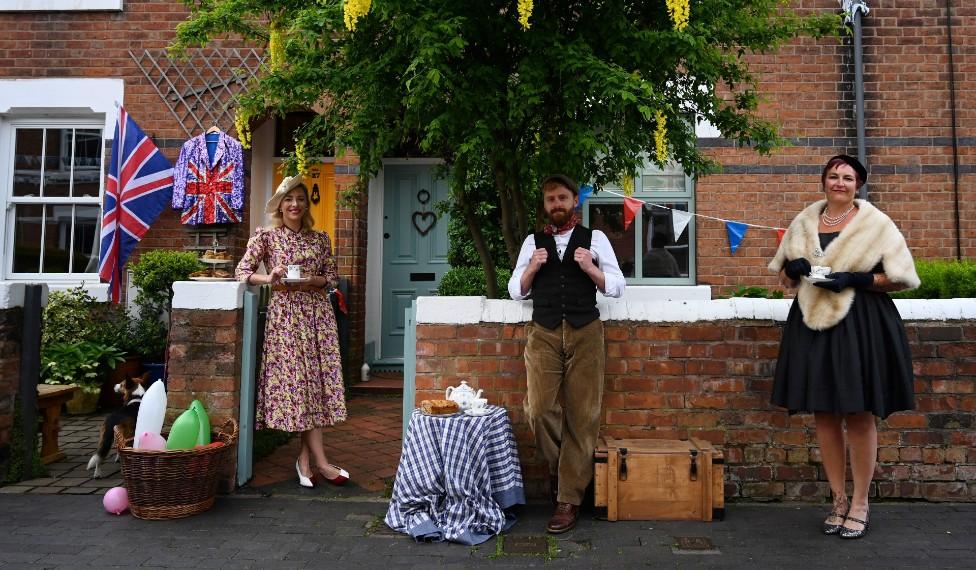
A street party in Chester, in period dress
VE Day - the 75th anniversary of the Allied victory in Europe in World War Two - would normally have been a massive street party across the UK. Even in the lockdown, communities did what they could - decorating their homes with bunting, sitting outside in deckchairs, socialising with neighbours in street parties, keeping 2m apart.
But as alcohol began to have its effect, staff in our accident and emergency unit began seeing evidence of a collapse in social distancing.
"On VE day we had patients in who had been assaulted in the middle of street parties," says A&E consultant David Greenhorn.
"There were a number of assaults and it was quite clear that as the alcohol flowed, the street parties became closer and they were no longer street parties, and more garden parties - and then eventually front-room parties. And then, as often happens with parties, they were boxing matches."
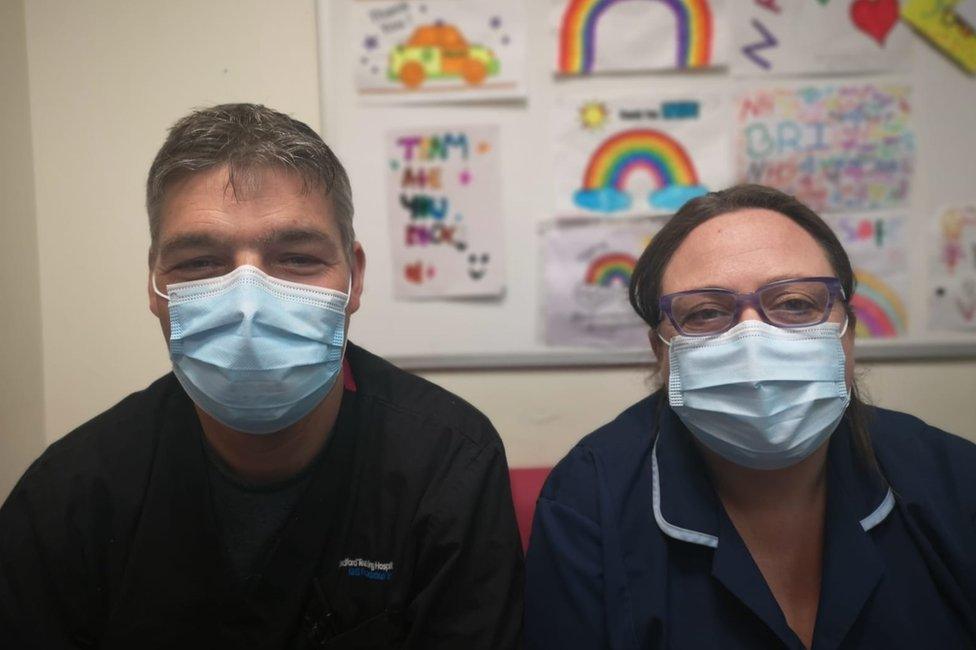
A&E Consultant David Greenhorn, and Sister Emma Clinton
As he points out, it's not possible to punch someone from 2m away.
People rarely end up in A&E after falling in love so David has less evidence to support his next theory, but he speculates that the parties also helped to incubate Covid cases in another way.
"It was a clear night and people were out and looking at the stars and singing, 'We'll meet again.' There is a lot of pent-up emotion and I understand that frustration - I know why people would want to have a drink, and once you've had a few drinks your inhibitions and judgement go and you forget to stay 2m away, and you get that 'I love you' moment.
"And, you know, next thing people are hugging."
So David was expecting to see a spike.

Front line diary
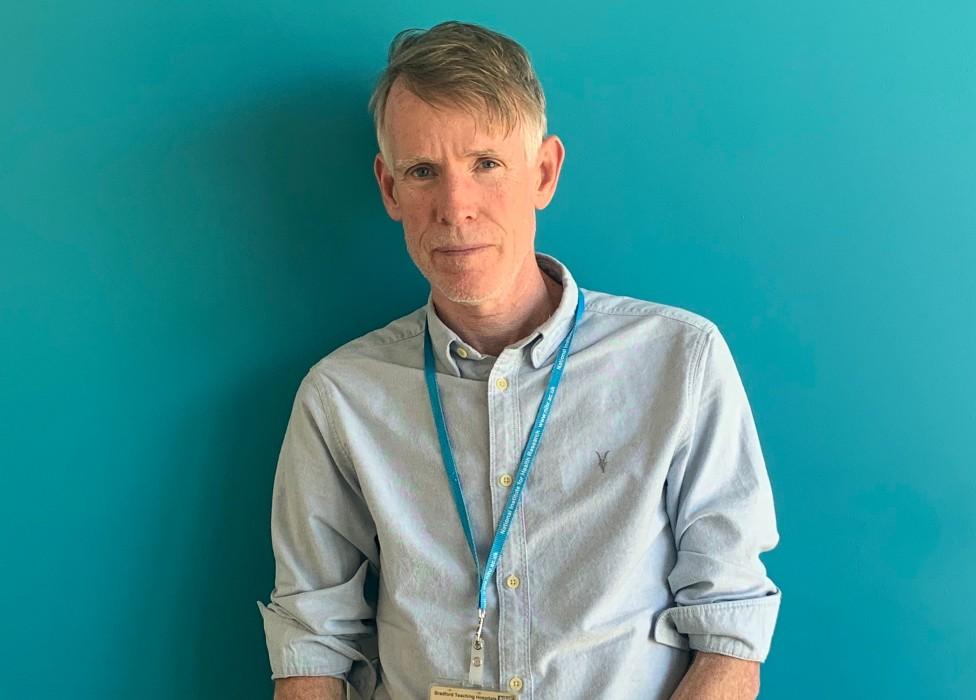
Prof John Wright, a doctor and epidemiologist, is head of the Bradford Institute for Health Research, and a veteran of cholera, HIV and Ebola epidemics in sub-Saharan Africa. He is writing this diary for BBC News and recording from the hospital wards for BBC Radio.
Listen to the next episode of The NHS Front Line on BBC Sounds or the BBC World Service
Or read the previous online diary entry: A super-spreading funeral that led to three deaths

After Thursday, the daily number of new cases at Bradford Royal Infirmary fell back to less than 15.
Even before the prime minister's announcement on 10 May, the lockdown had been slowly leaking, and the legacy of any leak is an increase in the number of Covid cases.
It was reported on Friday that the R number - the average number of people each infected person passes the coronavirus to - has been creeping back up across the country, and nowhere more so than in Yorkshire and the North East.
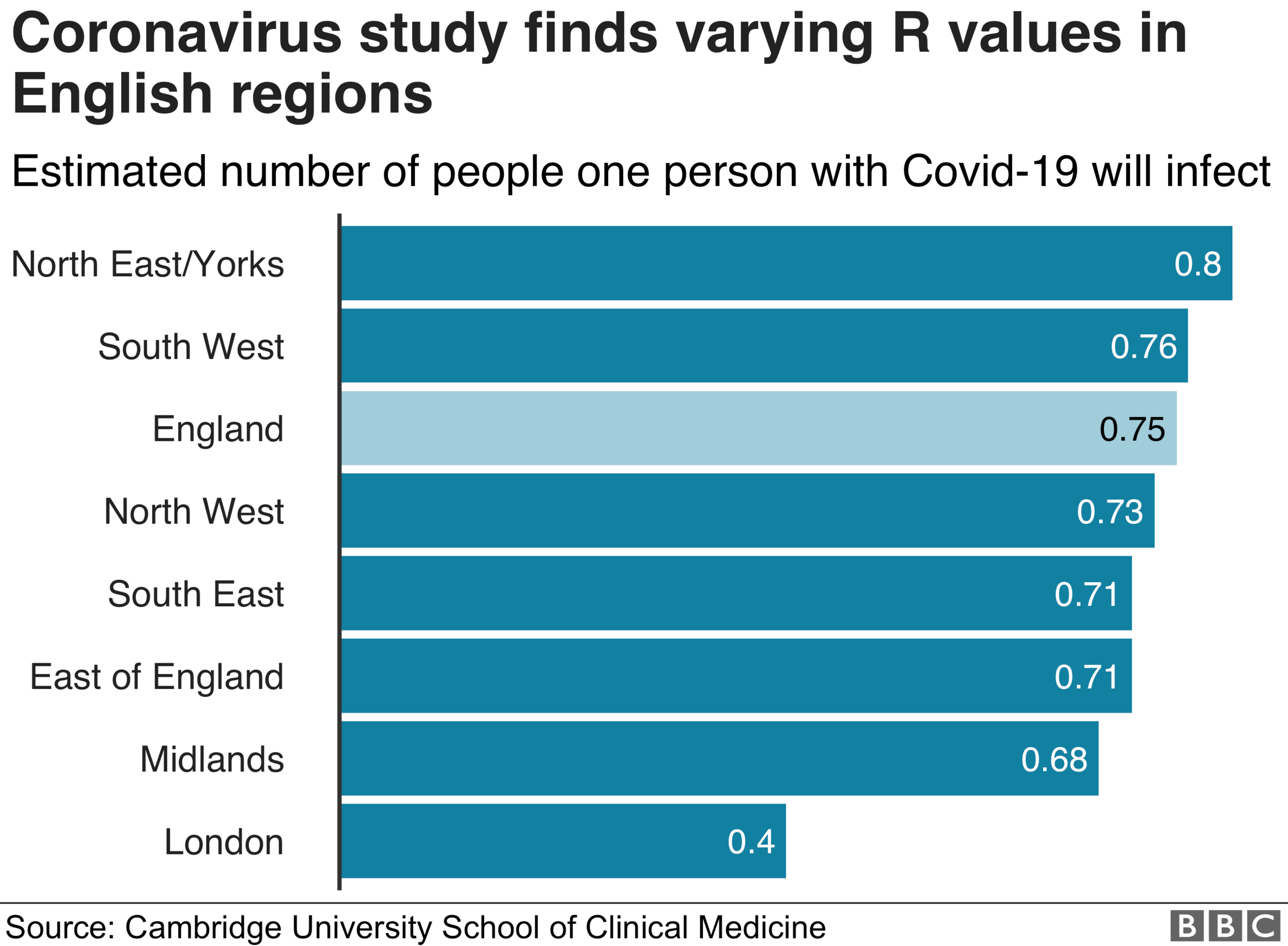
Consultant in respiratory medicine Dinesh Saralaya has concerns, therefore, about members of Bradford's Muslim population gathering in the evening to buy hot food from the South Asian restaurants the city is well-known for.
"A few of us have been talking about a breakdown in social distancing - I'm worried about the possibility that this might be happening as we approach the end of Ramadan," he says.
He points out that people are doing less cooking at home during Ramadan, when they fast every day until sunset, and that some restaurants have opened takeaways outside.
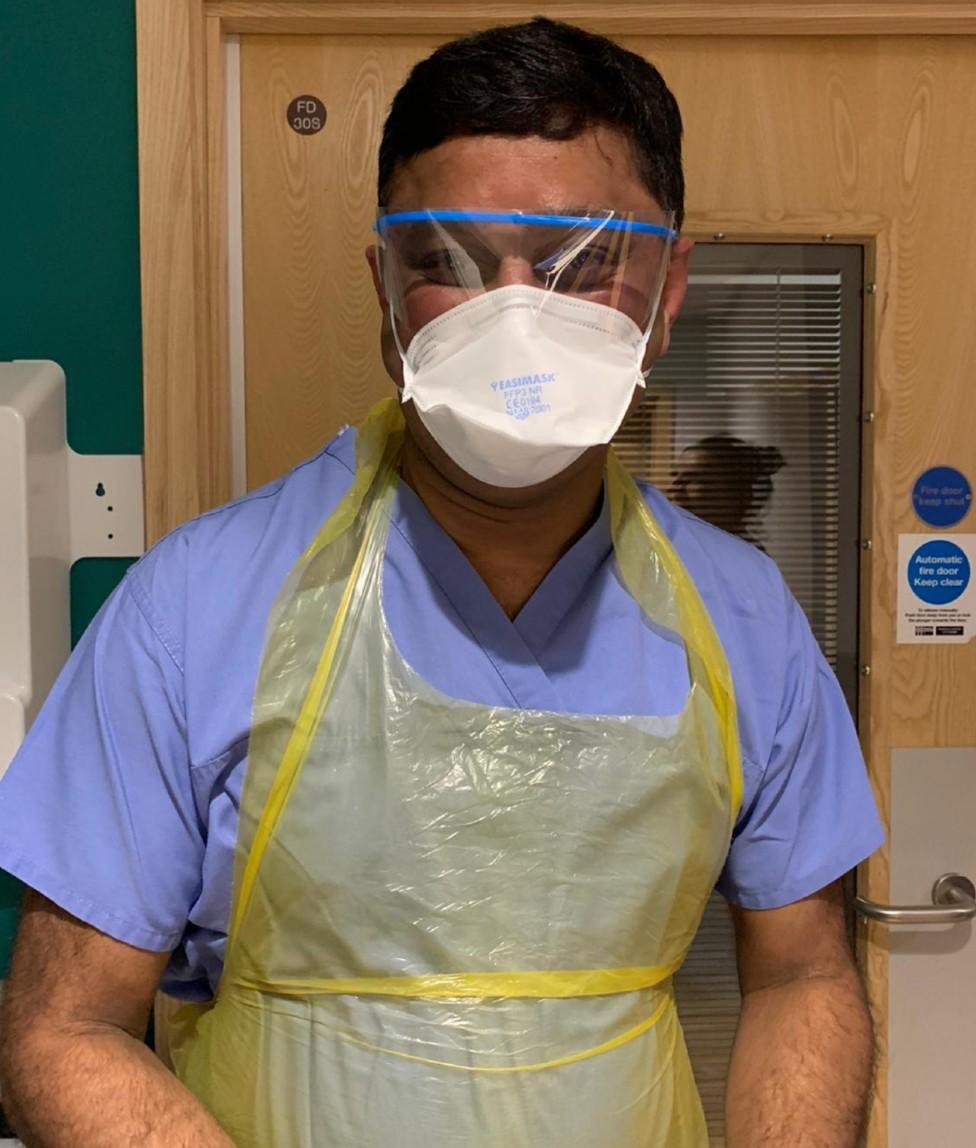
Dinesh Saralaya

"They want the food to be hot when they break their fast, so they start queuing from around 8.30pm," Dinesh says. "You can see lots of cars pull up and there are lots of people waiting. I think that it could be exposing people and worry that we will start to see some impact of that."
The end of Ramadan is approaching, with Eid-al-fitr, the breaking of the fast, being celebrated this bank holiday weekend by roughly a third of Bradford's population. Mosques would normally fill with grateful worshippers, and when Eid falls at this time of year it is particularly joyous - the city's streets and parks would typically be filled with sunshine and festivities. But this year, under the Covid cloud, the mosques will remain closed and gatherings ruled out.
The message remains unchanged in our city: Stay at home, Eid at home, save lives.
Follow @docjohnwright, external and radio producer @SueM1tchell, external on Twitter

A SIMPLE GUIDE: How do I protect myself?
IMPACT: What the virus does to the body
RECOVERY: How long does it take?
LOCKDOWN: How can we lift restrictions?
ENDGAME: How do we get out of this mess?
